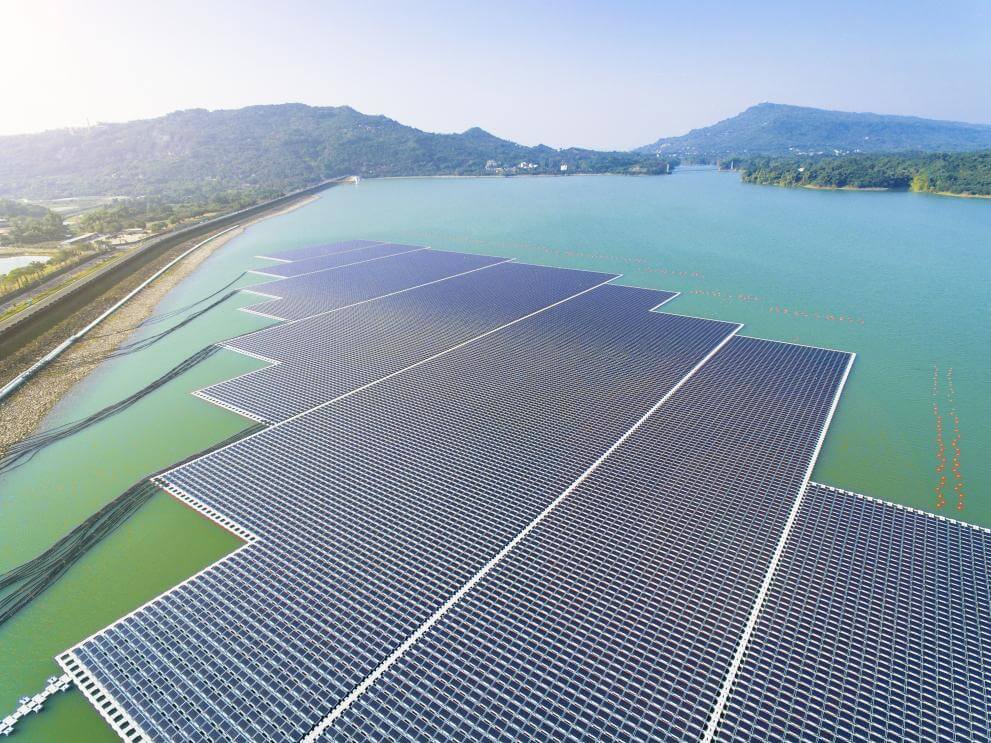The small island nation of Seychelles is going big on floating solar power, with plans to develop the world’s largest salt-water floating solar power plant.
According to the Seychelles News Agency, construction of the 5.8MW photovoltaic solar energy system will start in the fourth quarter of 2023, following a power purchase agreement (PPA) signed this week between French renewable company, Qair with the Republic of Seychelles’ Public Utilities Corporation.
“Just seven months separate us from this agreement and having a plant in operation in Seychelles,” said Flavien Joubert, the minister for Agriculture, Climate Change and Energy.
With a population of slightly more than 100,000, the project will propagate the island nation’s target of having 15% of its energy coming from renewables by 2030.
Favoured by its relatively small population, Seychelles is already doing well with its solar energy supply per capita.
A 2023 report, ‘Annual Solar Outlook 2023’ by the Africa Solar Industry Association, ranks Seychelles top in Africa with 179Wp/capita.
Floating solar plants, or photovoltaics, present a critical opportunity for Africa’s push towards renewable energy.
Benefits of floating solar panels include increased efficiency due to lower temperatures caused by being on the water, the lack of surrounding dust and dirt means panels stay clean longer, and if installed on a drinking-water reservoir, the solar panels reduce deleterious evaporation, and expanses of water are far cheaper to utilise than land, which can be expensive to rent or buy, particularly when close to large populations.
Industry experts believe this technology can complement existing hydropower projects, often affected by water scarcity during dry spells.
According to Sergio Montoro, Head of Renewable Energy at Globaltec, a Spanish firm executing projects in Africa, water scarcity during dry spells can significantly impact hydropower generation, ultimately leading to power disruptions.
“The option provides a viable alternative of interconnecting with existing hydroelectric plants…and can reduce water loss from evaporation in reservoirs by up to 80%,” he explained.
A 2021 study by the Joint Research Center of the European Commission found that floating solar technology can save 743 million metric tonnes of water annually, increasing hydropower production by 170 GWh annually.
Montoro said the technology also “avoids all the obstacles of land acquisition and the concerns of land consumption, freeing up land in densely populated regions.”
While at its nascent stage, several African countries are already embracing this photovoltaics segment by partnering with IPPs and private investment firms to advance relative projects.
Morocco and Tunisia have been at the forefront of the floating solar power segment in North Africa. Tunisia launched a photovoltaics pilot project last year, a model to launch similar projects nationwide. Morocco launched a project with 800 floating solar units in 2021 in the city of Sidi Slimane.
According to the Food and Agriculture Organization, Tunisia loses significant water to evapotranspiration – water evaporation from the surface soil, underground tables, and water bodies.
In the West African region, Ghana is leading the way in adopting floating solar power technology. After launching a 1MW solar power plant last year, the country’s Bui Power Authority announced the construction of an additional 4MW floating plant on the Bui Reservoir.
In January, the Central Electricity Board of Mauritius closed a bid window calling for project managers who will design, supply, install, test and commission a 2MW solar plant at the Tamarind Falls Reservoir.
In South Africa, there is a renewed charge to leverage renewables, including floating solar units, to alleviate energy woes in the country.
In a recent Expression of Interest, EOI, the country’s Department of Water and Sanitation, called for bids from IPPs to develop, own and operate power generation plants in 19 locations. The list included floating systems.
In Zimbabwe, Kariba Dam, the country’s critical hydropower facility, is another optimal site for photovoltaics.
Reuters in March 2023 reported that China Energy had proposed the construction of a 1000MW, US$1billion-dollar solar plant at the dam that could mitigate power deficits whenever Kariba’s water levels are less than optimal.
bird story agency
Seychelles is embarking on an ambitious floating solar power project, aiming to construct the world’s largest salt-water floating solar power plant, projected to generate 5.8MW. This initiative, launched alongside the French renewable company Qair, supports Seychelles' goal of sourcing 15% of its energy from renewables by 2030.
Floating solar panels offer various advantages such as increased efficiency, reduced evaporation, and lower maintenance costs. They can also complement hydropower projects by mitigating water scarcity issues. A European Commission study highlights the potential benefits, including significant water savings and increased hydropower production.
Several African nations, like Morocco, Tunisia, Ghana, and South Africa, are pioneering floating solar technologies. These countries are implementing projects to harness solar energy efficiently while addressing water scarcity and land usage problems. Notable projects include Morocco's 800-unit solar project, Ghana's expansion of its floating solar capacity, and Zimbabwe's proposal for a massive 1000MW solar plant.
This shift towards floating solar power signifies a broader trend among African countries to integrate renewable energy solutions, bolstering energy security and sustainability across the continent.






